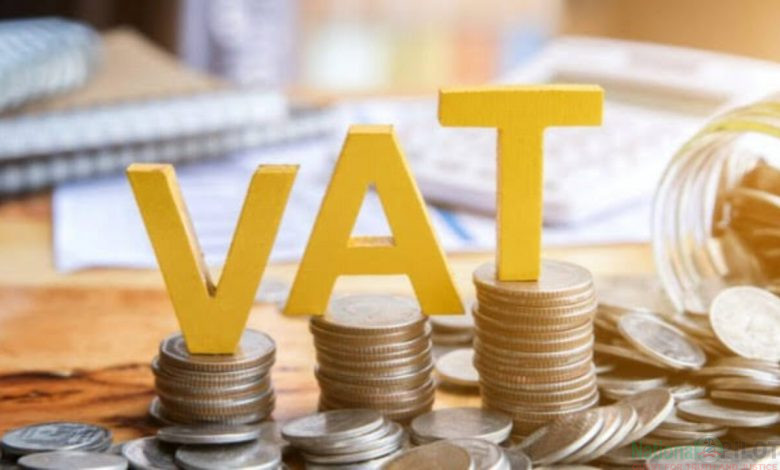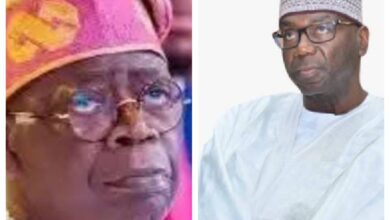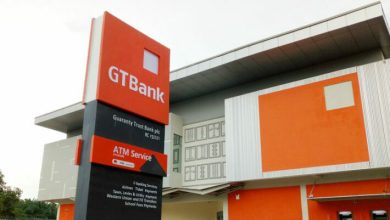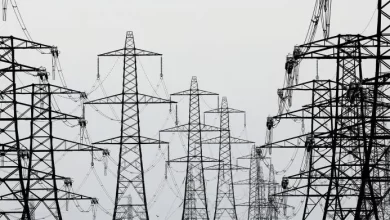
By Eric Teniola
The actions of Chief Nyesom Wike (57), governor of Rivers State and Mr Babajide Sanwo-Olu (56), governor of Lagos, have made us to take another look at the issue of taxation in Nigeria. Specifically, the actions of these governors and their Houses of Assembly, and the Southern governors that met recently, have reawakened our thoughts on the issue of the value added tax (VAT). Tax simplification is not simple. The tax system is too complex and too complicated. The concept of tax complexity turns out to be quite elusive when one tries to pin it down. It is very difficult to understand. What the governors have done so far is that they have ignited a flame out of emotions. No one knows how long it will burn out. The Supreme Court and its interpretation will not be the final arbiter on the issue. In the end some state governors may realise later that they have been shortchanged. If it’s not too late, let the sleeping dogs lie. One thing seems certain, there will be duplication of taxes in this country and the people might not be truly sure of whom to pay their tax to, is it FIRS or state functionaries. The average Nigerian will be financially strangulated. There will be emergence of tax enforcers or tax brigades who will be worse than political thugs or Motor Park touts. It will lead also to over taxation and will cripple various businesses in the country. And in a country where unemployment is high, where super inflation is on the increase, with insecurity all around, debt profile keeps rising, bad roads, bad medical facilities, the system itself may collapse.
For some time now, we have been debating on how to share the bread, (FIRS) collected N1.53 trillion on VAT alone last year, no one is talking about how to bake the bread. If we are not careful, very soon, there will not be any bread to share on the table.I am aware that the current VAT war is a protest on the central government and its certain policies of exclusion, partisanship, nepotism, ethnicity, non-consultation and unfairness. To top it all, the central government has been lackadaisical, indifferent and slothful to some areas in the country in an arrogant manner. In some instances the central government has been turning deaf ears to genuine advice and appeals treating its citizens like conquered and captured people. And that is not good for a fragile country like Nigeria.
Albeit, all relationship goes through hell, rare relationships get through it. A relationship is like a house, when a light bulb burns out, you do not go out to buy a new house. You fix the bulb.
Protest movements are often synonymous with inspiring leaders. Lack of leaders may exacerbate tensions and violence when protesters have no one to provide direction on how to confront the authorities. Interestingly, the leaders of those protesting against the centre today, were themselves products of the centre itself.
The present chairman of the governors’ forum, Dr John Olukayode Fayemi, Chief Chief Nyesom Wike (57), Mr Samuel Ioraer Ortom and Arakunrin Oluwarotimi Akerodolu alias AKETI (65), SAN.
If these governors and many others are rebels today, the Central Government made them so.
I am one of those who believe that the arrogance of the Central government is creating problems in this union called Nigeria. The matter could have been solved if there was a strong dialogue and a line of communication between the central government, state and local governments.
There are different types of taxes in the country today. We have the Personal Income tax Act (PITA), the Companies Income tax Act(CITA), the Petroleum Profit Tax Act(PPTA), Value Added Tax Act(VATA), Education Tax Act(ETA), National Automobile Council Act, Customs, Excise Tariffs, etc (Consolidation Act) and the Sugar Development Council Act.
The Value Added Act decree of 1993 was promulgated by General (rtd.) Ibrahim Babangida (80) GCFR. In fact it was part of the military legacy. The programme was first introduced by the first Minister of Finance under General Babangida, Dr. Kalu Idika Kalu (82),
According to the Value Added Tax decree, item 40 (distribution of revenue) states that notwithstanding any formula that may be prescribed by any other law, the revenue accruing by virtue of the operation of this Act shall be distributed as follows, that is — (a) 15 per cent to the Federal Government (b) 50 per cent to the State Government and the Federal Capital Territory, Abuja and (c) 35 per cent to the local governments.
In 1992, General Babangida appointed a study group headed by Professor Emmanuel Chukwuma Edozien (1937-2019), the late Ojiba of Asaba. It was this group that established the Federal Inland Revenue Service (FIRS) as the operational arm of Federal Board of Inland Revenue and set up revenue services at other tiers of government — States and Local governments.
President Obasanjo then submitted a bill for the establishment of the Federal Inland Revenue Service (FIRS) to the National Assembly. The bill was approved in the Senate on February 20, 2007, presided over by Senator Ken Ugwu Nnamani (72) from Enugu, then of the Peoples Democratic Party (PDP).
The Bill was also passed in the House of Representatives on February 21 presided over by Alhaji Aminu Masari (71) who hails from Masari village of Kafur local government, Katsina State of the PDP. Alhaji Aminu Masar is today the governor of Katsina state. The two houses jointly passed the bill and it was signed into law on April 16, 2007. It was jointly signed into law by President Olusegun Obasanjo, GCFR, and the Clerk of the National Assembly, Alhaji Ibrahim Nasiru Arab.
The highlights of the bill states that This Act may be cited as the Federal Inland Revenue Service (Establishment) Act, 2007. A192 Federal Inland Revenue Service (Establishment) Act 2007 No. 13 SCHEDULES FIRST SCHEDULE LEGISLATION ADMINISTERED BY THE SERVICE 1. Companies Income Tax Act Cap. 60 LFN, 1990. 2. Petroleum Profits Tax Act Cap. 354 LFN, 1990. 3. Personal Income Tax Act No. 104, 1993. 4. Capital Gains Tax Act Cap. 42 LFN, 1990. 5. Value Added Tax Act 1993 No. 102, 1993. 6. Stamp Duty Act Cap. 411 LFN, 1990. 7. Taxes and Levies (Approved List for Collection) Act 1998 No.2, 1998, 8. All regulations, proclamation, government notices or rules issued in terms of these legislation. 9. Any other law for the assessment, collection and accounting of revenue accruable to the Government of the Federation as may be made by the National Assembly from time to time or regulation incidental to those laws, conferring any power, duty and obligation on the Service. 10. Enactment or Laws imposing Taxes and Levies within the Federal Capital Territory. 11. Enactment or Laws imposing collection of taxes, fees and levies collected by other government agencies and companies including signature bonus, pipeline fees, penalty for gas flared, depot levies and licenses, fees for Oil Exploration License (OEL), Oil Mining License (OML), Oil Production License (OPL), royalties, rents (productive and non-productive), fees for licenses to operate drilling rigs. Fees for oil pipeline licenses, haulage fees and all such fees prevalent in the oil industry but not limited to the above listed. SECOND SCHEDULE Sections 3(4) SUPPLEMENTARY PROVISIONS RELATING TO THE BOARD Proceedings of the Board I. Subject to this Act and section 27 of the Interpretation Act, the Board shall have power to regulate its proceedings and may make standing orders with respect to the holding of its meetings, and those of its committees, notices to be given, the keeping of minutes of its proceedings, the custody and production for inspection of such minutes and such other matters as the Board may, from time to time determine. 2.-(1) There shall be at least four ordinary meetings of the Board in every calendar year and subject thereto, the Board shall meet whenever it is convened by the Chairman, and if the Chairman is requested to do So by notice given to him by not less than four other members, he shall convene a meeting of the Board to be held within 14 days from the date on which the notice was given. Sections 2, 25 and 68. Federal Inland Revenue Service (Establishment) Act 2007 No. 13 A193 2 Every meeting of the Board shall be presided over by the Chairman and if the Chairman is unable to attend a particular meeting, the members present at the meeting shall elect one of them to preside at the meeting. In fairness some of the reforms projected by President have been implemented by the FIRS. To their credit, the past Chief Executive of FIRS, from Mr. Babatunde Fowler who served from August 2015 to December 9, 2019 and the present Chairman, Alhaji Muhammadu Mamman Nami appointed on December 9, 2019, have been forthcoming in their to revenue collection drive. Just like last year alone, the organization collected 4.95 trillion naira.
There have been arguments as to the type of revenue the FIRS could collect or not. There are those who still insist that the state governments are entitled to certain percentage of what the FIRS collect in their states.
In the view of Mr Olumide Fusika, SAN,1. Section 162(10) of the Constitution defines public revenue. It is any income or returns accruing to or derived by the Goverment of the federation from any source (which, of course, would include taxes) 2. Section 162(1) of the constitution provides that public revenue derived as income tax proceeds of military and police personnel, staff of foreign affairs ministry and residents of the FCT belongs exclusively to the FGN. All other public revenue must be paid into the Federation Account for sharing among the FGN, the States and the LGs. 3. Section 162(2) prescribed that sharing from the federation account pool shall be done using a formula prescribed by the RMAFC and approved by the National Assembly on the principles of population, equality of States, internal revenue generation, land mass, terrain, and population density. However, public revenue derived directly from any natural resources shall first apply the criteria of derivation of not less than 13% to the host state. 4. Outside public revenue directly derived from natural resources, the derivation principles is further prescribed in Section 163 of the Constitution. That section provides for application of derivation principle to the sharing of public revenue derived from taxes and duties listed in the exclusive legislative list. By section 163(b) where such tax or duty is collected by the FGN or any federal authority, then there shall be paid to each state a sum equal to the proportion of the net proceeds of such tax or duty that are derived from that state. 5. The tax items under the exclusive jurisdiction of the Federal level of the Federation are Stamp duties and taxation of incomes, profits and capital gains (items 58 and 59 of the exclusive legislative list). 6. In the concurrent legislative list, item 7 provides that in the exercise of its powers to impose any of the said prescribed taxes, the National Assembly may provide that the collection or the administration shall be carried out by the Government of a state or other authority of a state. Since the use of “May” in this section isn’t mandatory, the National Assembly chose to confer the authority to collect and administer them on the FIRS, which in turn remits what it collects to the federation account where the FGN distributes, obviously without strict observance of the constitutionally prescribed derivation principle of 100% of the net proceeds (that is, what remains after administrative costs of collection) to the states where the duty it tax are derived from.7. The judgment of the FHC, P/H Division, is simply that the taxing powers of the FGN are those listed in items 58 and 59 of the exclusive legislative list (apart from PAT from the category of personnel exclusively reserved to the FGN under section 162(1) of the 1999 constitution). VAT (that is, taxes on sales and consumption) is not one of them. 8. If for reasons of ease of collection and administration, the FGN (National Assembly), with the buy-in of the States, has made an Act to regulate the collection of VAT in order to prevent the confusion that leaving each state to make its own law on it that should ordinarily be all well and good. But going beyond that to appropriate or use what is collected whimsically without regard to constitutional order is the crux of the matter.
At the time the VAT decree was promulgated by General Babangida in 1993, there was little input from the state governors. There could not have been any input because at that time we were operating a rigid military administration, even appointments of governors at that time was a military posting. At that time military governors could not travel outside of their state capital without the approval of the office of the Chief of General Staff or else they will be charged for treason. Even common allocation of plate numbers for governors was part of the schedule of the Chief of General Staff, Admiral August Akhabue Aikhomu (October 20 1939- 17 August 2011).
When the National Assembly passed the FIRS Act, it did not provide or prescribe a new formula for the sharing of the proceeds. Apparently, this was in recognition of the fact that the Constitution already covered the field by the unambiguous stipulation of its under Section 163 (b) What the Assembly did in the Bill was to allow the Revenue Mobilisation Commission to work out the formula without disregarding the constitutional parameter. Unfortunately the Commission, oblivious of this constitutional prescription, relied on the existing formula promulgated by General Babangida’s decree. Albeit, the ball is in the court of the central government to resolve this issue through a dialogue. The issue could not have degenerated to this level if there had been enough dialogue between the central and the state government. Fortunately the constitution has provided where this issue and other issues could be resolved. There is a council called the National Council of State which the President could summon for a meeting at any time.
The Council of State consists of the following persons: President, who is the Chairman; Vice-President, who is the Deputy Chairman; All former Presidents of the Federation and all former Heads of the Government of the Federation; All former Chief Justices of Nigeria; President of the Senate; Speaker of the House of Representatives; All the Governors of the states of the Federation; and Attorney-General of the Federation.
The council has the following responsibilities: Advise the President in the exercise of his powers with respect to the:-National population census and compilation, publication and keeping of records and other information concerning the same; Prerogative of mercy; Award of national honours; The Independent National Electoral Commission (including the appointment of members of that Commission);The National Judicial Council (including the appointment of the members, other than ex-officio members of that Council); The National Population Commission (including the appointment of members of that Commission); and advise the President whenever requested to do so on the maintenance of public order within the Federation or any part thereof and on such other matters as the President may direct.
The last schedule of the Council could deal with issues of the VAT and other contentious issues currently dividing the country.
*Eric Teniola, a former Director in the Presidency, writes from Lagos.





